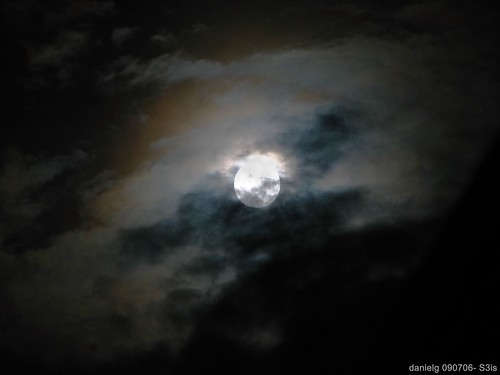-This is a post that I was hoping to put up shortly after finishing the book. Unfortunately, graduate school got to me and I am now finally getting to my old, completed but unpublished posts (6/09/11)-*
Over my spring break, I picked up a copy of Rob Bell's new book,
Love Wins and read through it in a few days. I have decided to weigh in on this topic and give my own reflections on the book. Let's being with the topic everyone originally got all up in arms over. Is Rob Bell a universalist? Well, I guess you'll have to read on and see.
While many defenders of Bell will contend that he isn't a universalist by what is talked about in the book, and I would agree, this depends on what is meant by universalism. If we are talking about believing that all paths to God are equally as good, then no. Bell makes it fairly clear that he is in agreement with traditional Christian doctrine that states Jesus is the only way to God. What Bell does do is to suggest that God can use "other means" to let people know of him. He uses examples of missionaries preaching to people groups that have little contact with the Western world, responding to the Gospel message with "we've been talking about that all along, we just never knew the name." On this statement, I will agree with Bell that God can (and does) use whatever means God deems appropriate to bring people to God. However, Bell does leave the door open so that people can still hear the Gospel message without ever hearing about Jesus and on this, I'm not sure if I agree. Granted, I am not God, but it seems to me that if you are going to claim Christ, you really do need Christ.
Going off this point, Bell also contends that it is entirely possible that God can still save people after death. On this point, I am less than sure, but what I do love about Bell's argument is that the door is open for God to do whatever God wants and that if God wants to save people after earthly death, God will. However, Bell never offers a definite yes or no as to if this is the case, he simply posits that it's possible and places himself in favor of this view. Bell also acknowledges that there are some people who simply will never, ever choose to be apart of God's kingdom and thus will be told, "You made your choice, you have no part in this." Libertarian free will at its finest.
I hope it's clear that Bell, while trying to remain close to Christian doctrines, is seriously bringing many of them into question. This is Bell's typical oeuvre, to ask questions. It is here that I think most of the controversy erupts, especially now. If you ask enough questions, would you still be able to contend anything as true? Is the act of questioning meant to lead to a new answer, the same one, or no answer at all? Bell is, for all intents and purposes, a mainline Evangelical who asks questions. The harm in this book is that if you already have an answer and have pinned your life on it, probing questions will lead you to see the cracks in your thinking and that, ultimately could lead to a paradigm shift. However, Bell's prose isn't quite up to the questions he's asking and most frustratingly, he provides not annotations and citations for his information. On this, I am almost willing to not endorse the book at all.
However, I will. I will endorse it for a very simple reason; it needs to be heard.
Love Wins brings serious questions to the forefront and due to the record number of sales it had, people do still care about this topic. As a starting point for discussing heaven, hell, and the fate of every single person who ever lived it is excellent. However, do more thinking, reading and discussing. His argument is not flawless, his prose frustrating (sometimes), and his lack of citation is confusing. His heart, one of a pastor who deeply cares for his congregation, which includes anyone who reads this book, shines through towards the end. In the retelling of personal stories, Bell casts himself as wanting to give hope to many who have none and to those who have been wounded by the church in the past. Read it for yourself, read it openly and discerningly, and read it with someone. It's a book that requires dialogue which is a rare commodity these days.
-Dan
*In posting this so long after the fact, I realize that several books are coming out in direct, or indirect, opposition to Bell's book. Considering this, I hope this review is still relevant.

